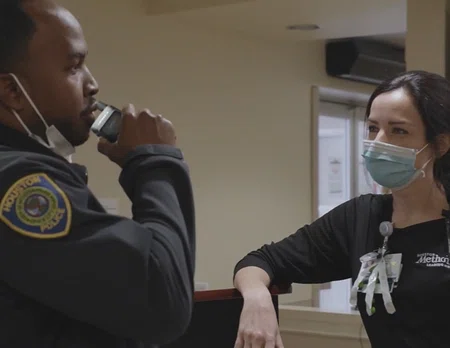

Contact us at CNREPHelp@houstonmethodist.org
Questions or comments?
© 2022. Houston Methodist, Houston, TX. All rights reserved.
EDUCATION
Incivility and Bullying in the Workplace
By Lenis Sosa, DNP, RN, CCRC
By Lenis Sosa, DNP, RN, CCRC

Nursing is an incredibly stressful job that requires intellectual, emotional, physical, spiritual and social energy to endure the day. When you add in a difficult workplace, completing nursing tasks can become unfeasible. According to the American Nurses Association (ANA), nurses have a professional obligation to create and sustain healthy and safe working environments. This puts the responsibility on us as nurses to ensure that not only other nurses, but other staff members and even students feel safe in our work environments.
According to Lewis et al. (2011), an estimated 85% of nurses reported experiencing incivility in the past. Incivility is a disrespectful and discourteous action that may negatively impact the act's intent. This negatively impacts workforce trends and overall systems thinking, resulting in care interruption, clinical errors and undesirable patient outcomes (Phillips et al., 2018). In addition, incivility increases depression, turnover, absenteeism, reduced job satisfaction and overall reduced health (Layne et al., 2019).
Bullying is defined as repeated unwanted actions that offend, humiliate and promote distress to another person (ANA, 2021). Bullying is associated with many issues, including race, culture, sex, gender, age, religion, socioeconomics, linguistics, discrimination, professional jealousy, class and miscommunication. Examples of bullying include gossiping, sabotaging behaviors, backstabbing, sharing or withholding information, criticism, passive-aggressive behavior, peer pressure, eye-rolling, demeaning remarks and rude or disruptive behavior that may result in psychological or physiological distress (Phillips et al., 2018). In addition, bullying may result in a ripple effect across team members and sets the tone for behaviors that become acceptable but are inappropriate and unprofessional (Clark, 2019).
Our goal at Houston Methodist is to create a culture that shares mutual respect. Our patients are at the center of everything we do; therefore, we must support each other to serve them best. In addition, we must uphold morals that create a positive workplace environment. Understanding the impact our words and actions have on our colleagues, stopping the line when we witness incivility or bullying, maintaining professional behavior by listening and responding with kindness and educating and empowering one another on the expectations of a healthy work environment are small things that create a big impact in the work environment.
To avoid bullying and incivility in our workplace, we must hold each other accountable and exhibit professional behavior in the workplace. We need to ask for honest feedback, be open and refrain from being defensive. We must take personal responsibility and accountability for our actions, live our organization's ICARE values, and acknowledge peers' ideas and contributions that would help us deliver excellent patient care and also help create a healthy, safe working environment for all of us.
References:










